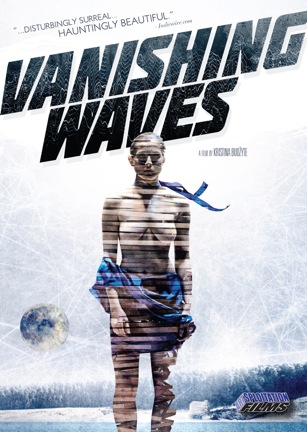Studio: Artsploitation Films
Director: Kristina Buozyte
Writer: Bruno Samper, Kristina Buozyte
Producer: Ieva Norviliene
Stars: Marius Jampolskis, Jurga Jutaite, Martina Jablonskyte, Darius Meskauskas, Vytautas Kaniusonis, Rudolfas Jansonas, Sarunas Bartas
Review Score:
Summary:
A neuron-transfer scientist develops a deep connection to a comatose woman after interfacing with her mindscape.
Review:
“Dreamscape.” “Inception.” “The Cell.” “Extracted.” Science-fiction and horror have taught audiences many cautionary lessons. And one of those is that at best, entering another person’s mind is certain to come with extreme complications. At worst, permanent psychological and physical scarring, if not a traumatic death, is assured for at least one of the participants. Despite these cinematic warnings, movie scientists continue repeating the same mistakes with their ill-advised journeys into intangible realms of the human brain.
Lukas is one such man on a team of well-meaning research scientists trying to break into the minds of comatose patients. Lukas is paired with an unconscious woman, Aurora, and tasked with connecting to her brain, albeit with an explicit instruction to not make contact with anything he might encounter while inside. There would not be much of a story if he remained an impartial observer, however. So Lukas ignores the prime directive at his first opportunity and enters into a cerebral fantasy with Aurora that develops quickly from affection into obsession, and soon spills over into the real world.
Try not to be too distracted by the hairy moles that everyone seems to have in this film.
“Vanishing Waves” is a dark fairy tale of stylish eroticism that is very much a romance film using the trappings of science-fiction to develop its story. There is deep substance to the atmosphere, but the emphasis from director Kristina Buozyte is on conveying her themes through mood. “Vanishing Waves” brims with dreamlike imagery from the clean production design without resorting to visual trickery. Simple elements like colors and sets are never overwhelming and the otherworldly mindscape never contains more visual information than necessary to illustrate the setting. Buozyte is indulging in cinema as an expressive art form, but not at the expense of distracting from the connection between the two central characters. Their pseudo love story is always the driving force behind the narrative.
While the scenery and the cinematography certainly do their part to create the hypnotic etherealness, it is the exceptional audio design that makes the film complete. The soundtrack effectively complements the sensory experience with trance-like hums and throbbing pulses. The auditory rhythm at times becomes unnoticeable, but it always remains a featured player. “Vanishing Waves” credits three different Supervising Sound Editors (Mathieu Rathelot, Leo Pouget, and Karen Blum), and their combined contributions to the overall feel cannot be overstated.
Storytelling inside the connected minds is accomplished with little to no dialogue, although some of the individual scenes end up playing better than the film as a whole. Specifically, there is a mesmerizing quality to a peculiar Oceanside dinner scene that draws in the viewer through the eyes and the ears, rather than an emotional tether to the characters. A tasteful orgy sequence is reservedly sexy without being salaciously titillating.
“Vanishing Waves” does tread into tedium in multiple instances, however. The ending, particularly a scene involving the two leads running naked across a beach, goes on well past the point of sustaining even the most devoted attention. The movie too often asks for a generous serving of patience while it basks in its own artfulness. At times, it makes the experience more oppressive than embracing. Making it through these moments that are much longer than they need to be is a titanic chore for viewers who are not invested in the relationship between Lukas and Aurora. Yet overall, it is difficult to not appreciate the intelligent design bursting from the film’s sights and sounds, even during those times when the story drags to the point of annoyance.
NOTE: "Vanishing Waves" is also known by the title "Aurora."
Review Score: 70






Watching an Adams Family film can be like watching Doctor Frankenstein furiously flitting about in his lab.